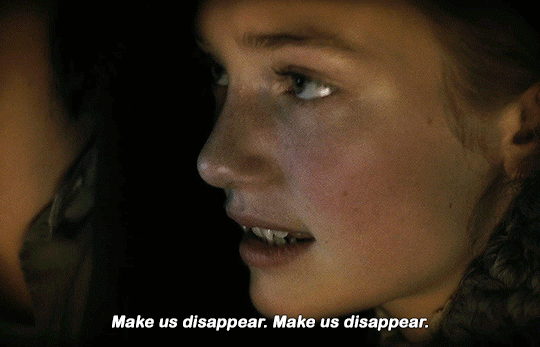How far would you go for love? Would you defy the unspoken rules of society? Would you break the law? Would you challenge the laws of physics and the rules of life and death? These are the questions that magician Eisenheim wrestles with in The Illusionist. This 2006 drama blends history, romance, suspense, and a little magic to relate a twisting tale that is nothing short of spellbinding.
The story begins in turn of the 20th century Vienna. Internationally acclaimed magician Eisenheim has returned home to see-out performances. In the midst of his most popular trick, however, he is arrested for fraud. His arresting officer then reports to Crown Prince Rudolph and relates all that he has learned about the mysterious magician's life and work. The story then flashes back to Eisenheim's childhood, when he was still a peasant known ad Eduard Abramovich. As a child he becomes fascinated by magic tricks which he uses to impress his crush, aristocrat Sophie von Teschen. The pair's childhood infatuation develops into a teen romance, but the two are separated after being discovered by Sophie's disapproving family. After her family moves to Vienna he sets off on his won, determined to become a successful magician. Fifteen years later he returns from a world tour. After a chance meeting with Sophie he learns that she is engaged to marry the Crown Prince Rudolph in an arranged marriage. The pair eventually rekindle their romance and Eduard learns that the price is abusive towards Sophie and is forcing her to help him in a plot to overthrow his father, the emperor. When she is found murdered it's up to Eduard to summon all of his magic to clear an innocent man's name, thwart a coup, and just maybe reunite with his beloved.
Through its combination of political intrigue, mystery, and romance The Illusionist is nothing short of magic. The film's central love story expertly balances between the personal and the political as it takes viewers on a twisting thrill ride through the streets of Vienna. While the plot remains grounded in its historical reality and even echoes real life events it hints at the supernatural in a way that will leave viewers begging to know the magician's secrets. The final reveal deserves a place amongst the most inventive and memorable twists in modern cinema. The film offers more than thrill, however, with its beating heart lying not in Eisenheim's bag of tricks but in his relationship with Sophie. The way in which the script shows the pair's relationship develop from youthful infatuation into selfless love is achingly romantic. As a result, viewers will be rooting for the star-crossed couple's success every step of the way. The cinematography and costume designs bring turn of the century Vienna to vibrant life. Even nearly two decades after the film's release its special effects are never less than stunning and are sure to leave viewers every bit as spellbound as Eisenheim's audience. For viewing that will leave your pulse pounding and heart racing fall under the spell of The Illusionist.
The film transports viewers to the splendor of the turn of the century Vienna thanks to the work of its stellar cast. Aaron Johnson and Eleanor Tomlinson turn in surprisingly mature performances as young Eduard and Sophie. Paul Giamatti aptly conveys the conflict between ambition and honor as the dogged Inspector Uhl. Rufus Sewell is tyranny personified as the brutal Crown prince Leopold. Jessica Biel infuses Sophie with warmth, intelligence, and quiet strength. Edward Norton proves himself as a leading man as the story's titular illusionist. He aptly blends mystique, longing, wit, and charisma in a performance that is nothing short of magic. Together, Norton and Biel share a chemistry that is sure to cast a spell over viewers.
At once a classic historical romance and a modern thriller, The Illusionist captures the magic of the movies. The script expertly merges mystery, history, and romance to tell a tale that will leave viewers guessing until its final reveal. The brilliant work of the cast immerses viewers in the world of turn of the century Vienna. Nearly twenty years after its release the film still holds plenty of tricks up its sleeve. Believe in magic with Sophie and Eisenhim in The Illusionist.




